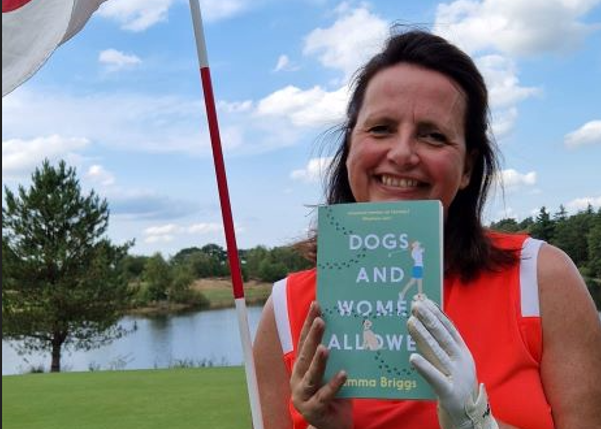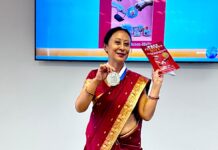As many of you know, Eindhoven News aims to keep internationals living in the city of Eindhoven and surrounding area up to speed on local happenings. We also aim to be the voice of international Eindhoven, as well as a bridge to connect all cultures and nationalities.
EN wants to zoom in on some of the individuals with diverse backgrounds – refugees, expats, students, labour migrants – to find out what brought them here, what role languages play in their lives, and how they perceive differences in interaction that necessarily stem from intercultural exchange. Finally, we would like to find out how their presence has enriched the region and what the region has brought to them. The series is called ” Eindhoven, of all places…”.
Enter: Emma Briggs
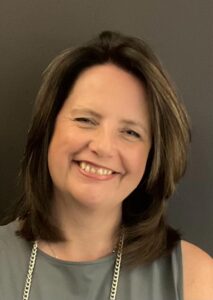
The first interviewee in this series is Emma Briggs. Having checked her LinkedIn profile I know she is a civil servant, specialising in ‘creating space for urban amenities’. This means she helps ensure that the number of services vital to Eindhoven residents’ wellbeing remains in proportion to the size and number of residents as the city grows. By all means an interesting topic for another interview, but there are more sides to this versatile lady, which is why we meet in a bookshop.
Discoveries in the bookshop
When I meet Emma I am struck by her warm smile and eyes that are used to sizing people up in an instant. We meet in a bookshop because, as it turns out, it offers good coffee and a place to sit and chat. First, Emma wants to ascertain how well her novel is selling. Dogs and Women Allowed is her first published book, making Eindhoven News curious about the process of self-publication.
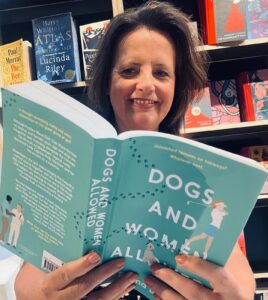
However, I would first like to find out about Emma’s experiences and ideas as an Eindhoven citizen with an international background, the focus of this series of interviews, after all. As soon as she has satisfied herself that sales are good, we settle down with our coffees and Emma is ready to shed light on her background. To do so, she goes back a bit to the history of her parents.
The story begins with Anthony Briggs
Her father, Anthony Briggs, or Tony, started out life as a traditional son in a well-to-do English family, leaving home for boarding school – though at the unusually young age of four – and ending up with a university degree and his family’s expectations to live up to. To his father’s disappointment, however, Anthony became a reporter for Golf Illustrated – not a gentleman’s occupation, according to Briggs senior. To Tony, on the other hand, it was a dream job. He got to meet all the greats in golf, such as Jack Nicklaus, ‘The Golden Bear’, and had a whale of a time.
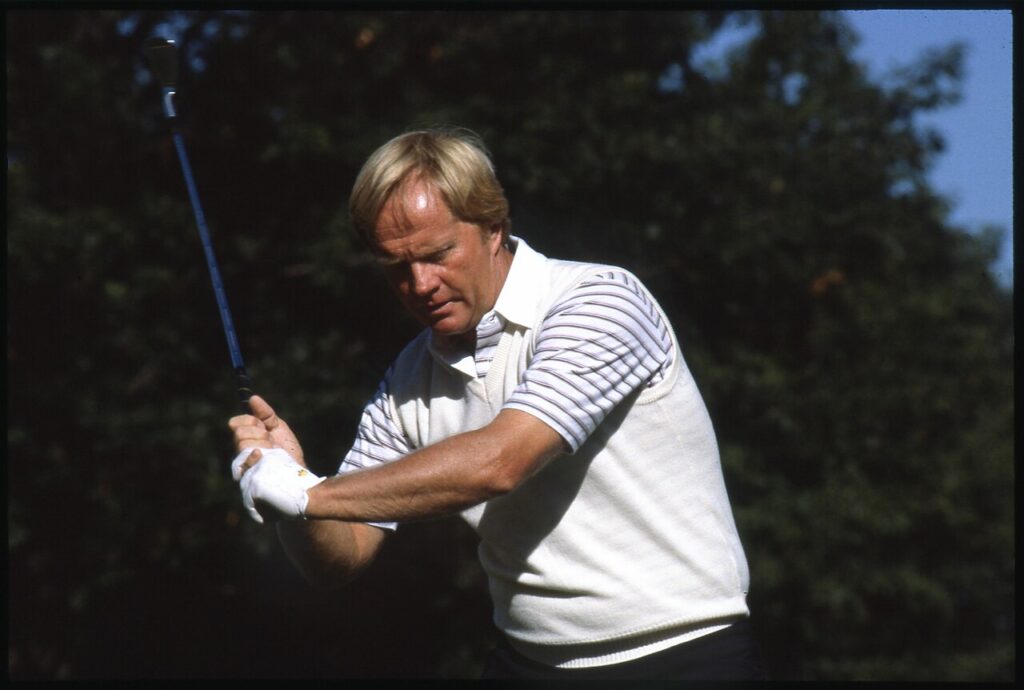
This backstory will prove to be relevant when we know that Emma’s novel Dogs and Women Allowed has the golf course and golf club life as its setting.
Eindhoven and adventure
In search of further adventure, as Emma puts it, Anthony, together with two friends, decided to move abroad. And settled in ….
….Eindhoven, of all places.
Emma feels she has to defend her calling this move to Eindhoven adventurous. Some may regard Eindhoven as a not so impressive provincial town (my words), but Emma says that in the 1960s it was buzzing with optimism and opportunity. Philips head office, Daf cars and trucks, the THE (forerunner of the TU/e) the construction of a daring architectural feat like the Evoluon, Eindhoven was the place to be. Anthony Briggs and his two friends – “The Three Musketeers” as they branded themselves – found work for the Philips Press Office and settled down.
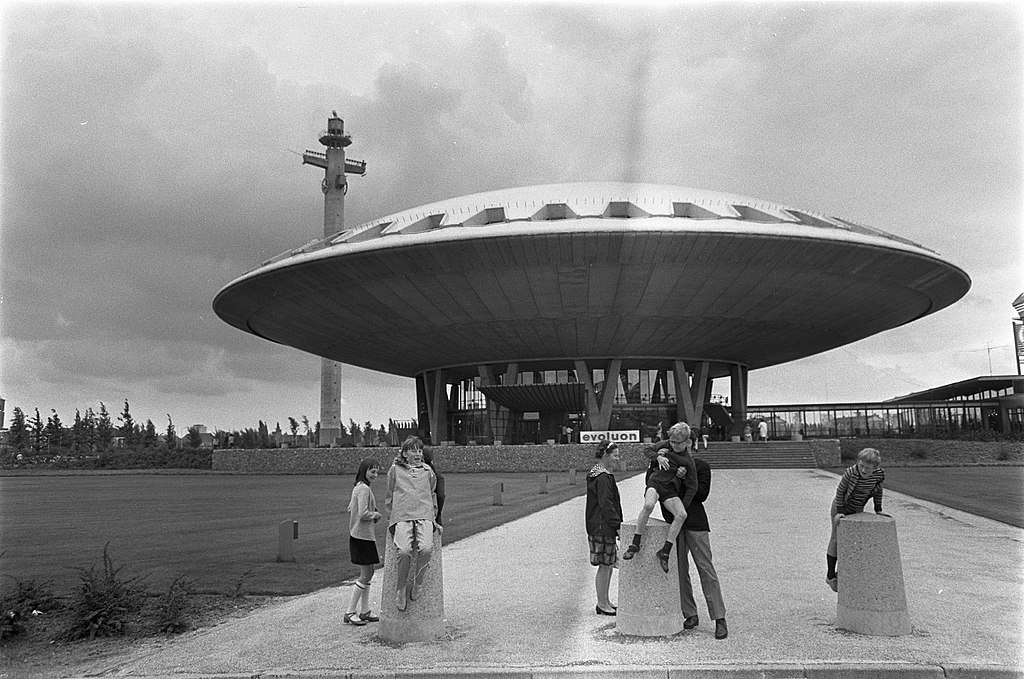
Anthony married a lady from Overijssel who had come to visit an aunt and decided to stay, and the couple had two daughters, both of whom inherited their father’s love of golf. Emma’s sister runs a business in golfing equipment and Emma uses her passion for the sport to inspire her writing.
“The English Girls”
The two daughters, despite being born in Brabant, were called ‘the English girls’. Emma clearly sees herself as belonging to two cultures – or not belonging to either – a sentiment many internationals will recognise. Her home and garden are decorated and laid out in English style, but her job is with a Dutch municipality. Her parents’ ashes were scattered on the North Sea, the halfway stage between their two countries. Emma says she never feels ‘fully grounded’; back home is Norfolk, back home is Brabant.
This background naturally means she is equally fluent in both English and Dutch, with a keen ear for the nuance in the two languages as well as for their regional and cultural varieties. She loves dialects and accents, and believes TV shows can influence a viewer’s use of language. One of her favourite podcasts is The Wittering Whitehalls with its ‘nice’ RP – received pronunciation. BBC English, if you like.
Living in The Netherlands but also having lived and worked in Sweden for seven years has made Emma even more keenly aware of cultural differences in human interaction. When it comes to authority in the workplace, for example, Sweden is more democratic, in the U.K. authority rules, and The Netherlands sit somewhere in between. It also struck her that Swedes always find it important to take people’s feelings into consideration, but frown on people expressing sympathy physically, through a touch on the arm, for instance. When it comes to parental authority, she feels that English parents stress the need to respect one’s elders, whereas Dutch children get much leeway and can be loud or even uncivil.
What you get and what you give
“The Netherlands is a great country to live in”, says Emma with conviction. “It has given me a wonderful life, an education, opportunities, good, and on occasion life-saving health care, and ample opportunities to play sports”. In turn, she has contributed to The Netherlands by volunteer work, for example as a Rotary Club member, and by offering an alternative perspective when it comes to bigotry, sexism or racism.
This urge to fight sexism and bigotry, coupled with an addiction to golf, prompted Dogs and Women Allowed. Golf courses used to be off limits for dogs and for women – in that order, and, though both categories are allowed now, there is still some way to go to eradicate bigotry and other mistaken assumptions. Emma addresses these issues in her funny, serious, mischievous, light-hearted read.
No self-publication without determination
Self-publishing a novel is no mean feat. Emma explains that in order to find a publisher, a writer first needs an agent. Agents are inundated with requests; they do not jump on the opportunity to guide a 50+ debutante, she says without any trace of bitterness. So, she is not the first writer to take the self-publication route. The process, she reveals, requires time and money and determination, but is also a good learning process and intensely exciting and rewarding.
So now it’s on the shelves, this novel, this thoroughly English imaginary golf club world and the characters in it, who have one thing in common in all their diversity – an addiction to golf.
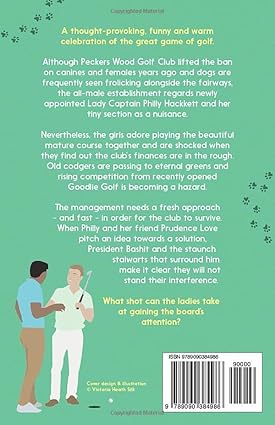
“The sweet spot”
“What makes golf so addictive?” I ask. With great animation, Emma replies, “ When you get it right – and this happens some four or five times a year – you hit what’s called the ‘sweet spot’. Your golf ball, though extremely hard, is nevertheless compressed by the force of your blow in exactly the right spot, and you instantly know you’ve hit a great shot, you don’t even have to look. That kick is addictive”.
“Furthermore, it is an inclusive sport”, Emma says. “Everyone can play. The system of handicaps and where you tee off gives everyone an equal chance to win, as everyone plays according to their strength and capabilities. I could win from Tiger Woods”, she claims.
Finally, Emma claims that golf culture is a good culture to grow up in. Children are respected. They can spend much time outdoors. They are given appropriate tasks. With fondness she remembers her dad taking his two daughters to the golf course on Sundays. It is also a sport where you are your own referee. Fiddling would be easy, but is definitely frowned upon. “The person who values his or her reputation on the golf course can also be trusted off the course”, Emma concludes with great conviction.
Or, in the words of P.G. Wodehouse, one of Emma’s favourite authors:
Golf…is the infallible test. The man who can go into a patch of rough alone, with the knowledge that only God is watching him, and play his ball where it lies, is the man who will serve you faithfully and well.*
Or woman, one might argue.
*P.G. Wodehouse (2011). “The Clicking of Cuthbert”, p.130, The Floating Press
Written for Eindhoven News by Greta Timmers


